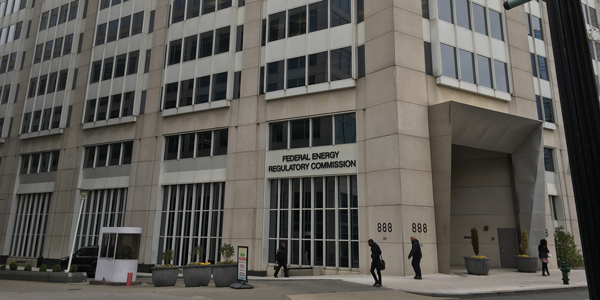By Rory D. Sweeney
Three owners of gas-fired generation in PJM’s territory have filed a complaint asking FERC to direct the RTO to adopt what they’ve termed a “clean MOPR” to be implemented in time for the May 2019 Base Residual Auction (EL18-169).
The minimum offer price rule sought by CPV Power Holdings, Calpine and Eastern Generation would be applicable to all subsidized resources and wouldn’t include categorical exemptions like those in the Independent Market Monitor’s MOPR-Ex proposal that PJM filed along with its own capacity repricing proposal as part of its “jump ball” proceeding.
While the clean MOPR would also include federal subsidies, it would retain an exemption for unit-specific justifications of offers below the rule’s floor. MOPR-Ex includes exemptions for self supply, states’ renewable portfolio standards, public power and competitive entry. (See PJM Capacity Proposals Widely Panned.)
The generators say they are offering “a vehicle for the commission to initiate a separate proceeding” from the other two proposals and a 2016 complaint, which Calpine and Eastern Generation joined, on how the existing MOPR handles subsidized resources (EL16-49). They say neither of the two previous dockets “allow the commission to take the sort of comprehensive action that is urgently needed at this time,” but they also ask that the records from those two dockets be incorporated into their new complaint.
The complaint, which is more than 600 pages, includes an affidavit by Roy J. Shanker, a well-known industry consultant, who says that “the only realistic fix to subsidies is a clean MOPR” that is “straight-forward, easily understood and, with the elimination of the exceptions and exemptions, administratively simpler than MOPR-Ex.” He goes on to list six attributes that the “clean MOPR” would provide, including facilitating “robust competition,” not impeding or distorting price signals, ensuring least-cost resources are selected, price transparency, shifting risk from customers to private capital or the political entities creating the subsidies, and mitigating market power.
The companies also note that some subsidies “greatly exceed” BRA clearing prices, which Shanker says “should provide the commission great pause.” The subsidies “crowd out” economic resources, causing them to retire early, and discourage new economic resources. Shanker says that the participation of 1,000 MW of subsidized resources in the auction could “depress overall market prices by $1 billion,” and with states considering subsidies for perhaps 10,000 MW or more, “billions of dollars in price suppression is simply not sustainable.”
The complainants make several arguments for why subsidies need to be eliminated from markets completely, lest they irrevocably break them. They mention the Monitor’s warnings that “subsidies are contagious” and “an effort to reverse market outcomes with no commitment to a regulatory model and no attempt to mitigate negative impacts on competition.”
The actions of one state “can have a significant impact on wholesale prices affecting loads in other states,” they argue, urging FERC to “be cognizant of the fact that failure to protect the organized, multistate [Reliability Pricing Model] market from one state’s policy choices inevitably impacts other states.”
The generators say they’ve brought up the issues in PJM stakeholder meetings, but the results lead them to “believe that further discussions between the parties will [not] resolve the concerns.”




